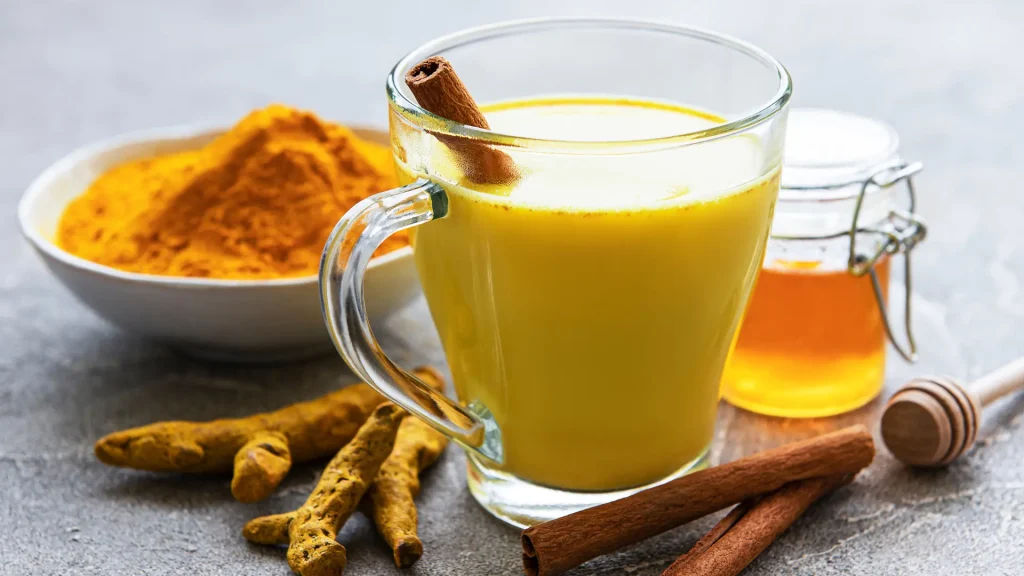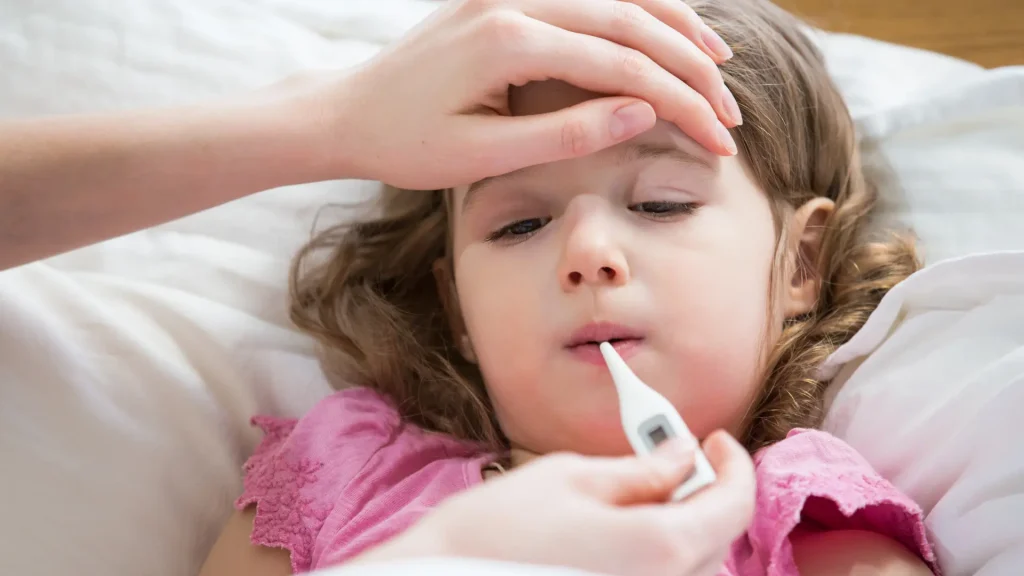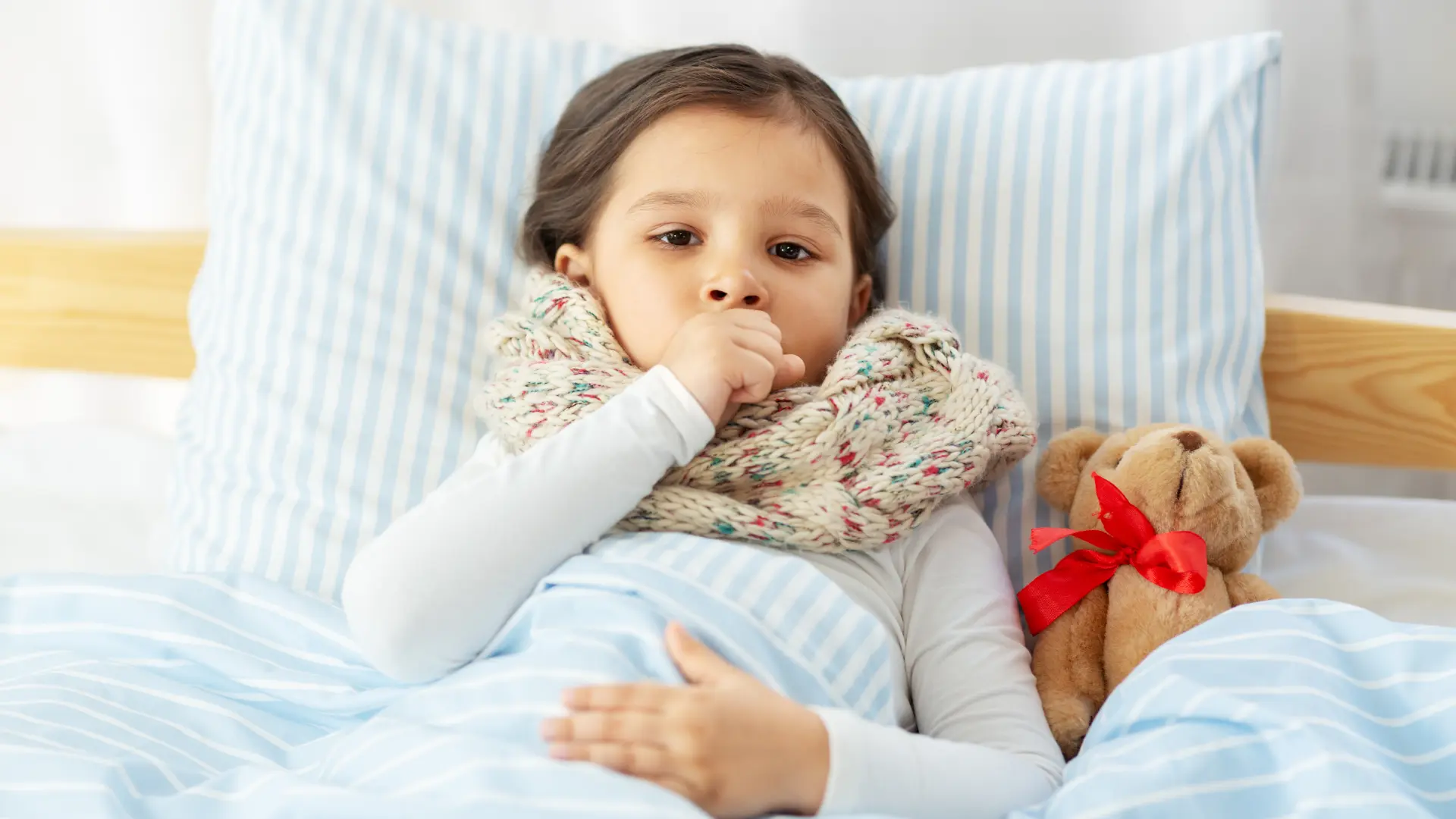When your child is suffering from a nagging cough and a stuffy nose, it’s natural to seek gentle, effective solutions. This article explores safe and paediatrician-approved natural remedies for cold and cough in kids, rooted in both traditional Indian wisdom and modern medical understanding.
We delve into eight key remedies, including the soothing power of honey (Shahad) for older children, the anti-inflammatory benefits of turmeric milk (Haldi Doodh), the congestion-clearing ability of steam inhalation (Bhaap), and the importance of hydration and rest. Each suggestion is provided with clear instructions and crucial safety precautions, especially regarding age-appropriateness.
While these home treatments can provide significant comfort and relief for common childhood illnesses, it is vital to recognise their limits. We clearly outline the warning signs that indicate a more serious condition requiring a doctor’s attention. Symptoms like a high fever in a toddler, difficulty breathing, or a cough that lingers for weeks should never be ignored.
This guide is designed to empower you with confidence in managing mild symptoms at home, while also providing the clarity needed to know when it’s time to consult a child specialist at Borneo Hospitals, ensuring your child receives the best possible care.
Introduction
The sound of a child’s cough can keep any parent up at night. As one of the most common childhood illnesses , the cold and cough in babies and toddlers sends worried parents searching for relief. While your first instinct may be to reach for over-the-counter medicine, many paediatricians advise caution. At Borneo Hospitals, our team, including founder Dr. Santosh Madrewar, often recommends starting with safe, time-tested natural remedies for cold and cough in kids.
This guide, designed for caring parents like you, offers expert-approved advice on how to soothe your little one’s symptoms at home, and just as importantly, when you need to seek professional pediatric care.
Understanding Your Child’s Cold and Cough: What’s Normal?
A typical cold is a viral infection of the nose and throat. Symptoms like a runny nose, sneezing, and coughing are the body’s way of getting rid of the virus. Most colds are mild and resolve on their own within a week or two.
The Difference Between a Cold and the Flu in Kids
It’s important to know the difference. A cold comes on gradually, while the flu hits fast and hard, often accompanied by high fever, body aches, and severe fatigue. If you suspect the flu, it is always best to consult a pediatrician.
8 Doctor-Approved Natural Remedies for Cold and Cough in Kids
Here are eight safe and effective ways to manage symptoms and support your child’s recovery.
1. Hydration is Key (Warm Fluids)
Keeping your child hydrated thins mucus, making it easier to cough up and blow out.
- How it Helps: Fluids prevent dehydration, which can be a risk if your child has a fever in kids. Warm liquids can also soothe a sore throat.
- What to Do: Offer water, warm clear soups, or diluted fresh juices. For babies under six months, continue with exclusive breastfeeding or formula; the benefits of breastfeeding for a baby’s immunity are especially important during illness.
2. Honey (Shahad) for a Sore Throat (For Children Over 1 Year)
Honey is a well-known cough suppressant and can soothe a sore throat.
- How it Helps: Its thick consistency coats the throat, providing relief. It also has natural antibacterial properties.
- What to Do: Give half a teaspoon of honey to children aged 1 to 5, and one teaspoon to children aged 6 to 11. You can give it plain or mixed in warm water.
- Important Safety Note: NEVER give honey to a baby under one year of age due to the risk of infant botulism, a serious illness.
3. Turmeric Milk (Haldi Doodh): The Golden Healer
This traditional Indian remedy is packed with benefits.
- How it Helps: Turmeric contains curcumin, a compound with powerful anti-inflammatory and antioxidant properties that can help fight infection and reduce inflammation in the airways.
- What to Do: Mix a pinch of pure turmeric powder into a glass of warm milk. You can add a little jaggery (gud) for sweetness for older children.

4. Steam Inhalation (Bhaap)
Steam is a simple yet powerful way to ease congestion.
- How it Helps: The warm, moist air helps to loosen mucus in the nasal passages and chest, making it easier for your child to breathe.
- What to Do: The safest way is to run a hot shower and sit with your child in the steamy bathroom for 10-15 minutes. Avoid using hot water bowls, which pose a burn risk. A cool-mist humidifier in the bedroom can also help.
5. Saline Nasal Drops
A blocked nose can make it very difficult for babies and young children to feed and sleep.
- How it Helps: Saline (saltwater) drops help to thin and wash away mucus.
- What to Do: You can buy paediatric saline drops or make your own (mix 1/4 teaspoon of salt in one cup of boiled, cooled water). Lay your child down, put 2-3 drops in each nostril, and then use a nasal aspirator (bulb syringe) to gently suction out the mucus.
6. Elevating the Head During Sleep
This simple trick uses gravity to help with nighttime coughing and congestion.
- How it Helps: A slightly elevated head can help nasal passages drain, reducing postnasal drip that often triggers a cough at night.
- What to Do: For older children, an extra pillow works. For toddlers and babies, NEVER use pillows in the cot. Instead, place a towel or a thin pillow under the head of the mattress to create a gentle incline.
7. Ginger and Tulsi Concoction (Adrak-Tulsi Kadha)
This herbal tea is a staple in many Indian households.
- How it Helps: Ginger is known for its anti-inflammatory properties, while Tulsi (Holy Basil) is a well-regarded herb for respiratory support.
- What to Do: Boil a few Tulsi leaves and a small piece of crushed ginger in a cup of water. Strain, cool to a lukewarm temperature, and give a few spoonfuls to your child throughout the day.
8. Rest, Rest, and More Rest
Never underestimate the healing power of sleep.
- How it Helps: The body repairs itself and fights infection most effectively during rest.
- What to Do: Encourage quiet activities like reading or drawing. Don’t worry if your child sleeps more than usual; it’s an essential part of their child health recovery process.
When Home Remedies Aren’t Enough: When to See a Paediatrician
While these natural remedies for cold and cough in kids are effective for mild cases, it is crucial to know when to seek medical help. Contact your child doctor immediately if you notice:
- High Fever: A fever of 100.4°F (38°C) or higher in a baby under 3 months, or a persistent high fever in a toddler above 102°F (39°C).
- Breathing Difficulties: Fast breathing, wheezing, or the skin sucking in around the ribs or neck.
- Signs of Dehydration: No tears when crying, a dry nappy for more than 6-8 hours, or a sunken soft spot on the head.
- Lack of Improvement: If the cough and cold don’t improve after a week or seem to be getting worse.
- Severe Cough: A cough that is severe, persistent, or ends in a whooping sound.
- Extreme Irritability or Lethargy: If your child is unusually fussy or sleepy and difficult to wake.

How Borneo Hospitals Supports Your Child’s Health
We understand that for “The Anxious Parents”, every cough can sound like an alarm. Our team of experienced paediatricians at Borneo Hospitals provides compassionate and comprehensive care. We believe in empowering parents with knowledge but are always here to provide expert diagnosis and treatment when needed.
We offer everything from routine kids health checkups to specialised care in pediatric cardiology and pediatric neurology , ensuring your child is always in the best hands.
If you are worried about your child’s health, please don’t hesitate to consult with our experts.
You can visit us at the nearest Borneo Hospitals branch in Thane, Nashik, Waluj, or Raipur. For quick advice or to book an appointment, please call our helpline. We invite you to schedule a consultation with Dr. Santosh Madrewar, Senior Paediatrician and Founder of Borneo Hospital (MBBS, DCH). He and his team are dedicated to your child’s well-being.
Further Reading & Reliable Sources
- World Health Organization (WHO) on Child Health: https://www.who.int/health-topics/child-health
- Indian Academy of Pediatrics (IAP) – Parent Resources: https://iapindia.org/parent-resources/
- Mayo Clinic – Cold remedies: What works, what doesn’t, what can’t hurt: https://www.mayoclinic.org/diseases-conditions/common-cold/in-depth/cold-remedies/art-20046403
- Research Paper on Honey for Acute Cough in Children (PubMed): https://pubmed.ncbi.nlm.nih.gov/29633783/


